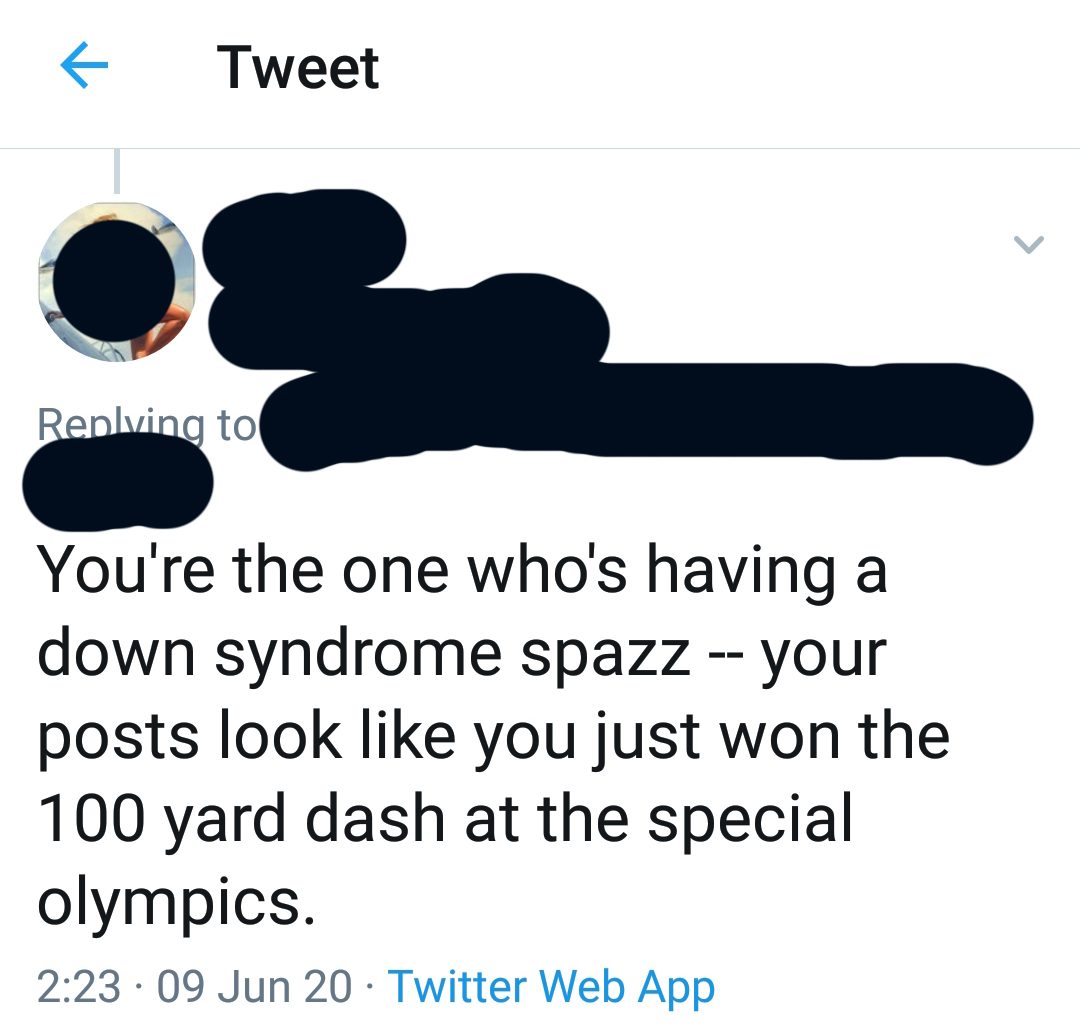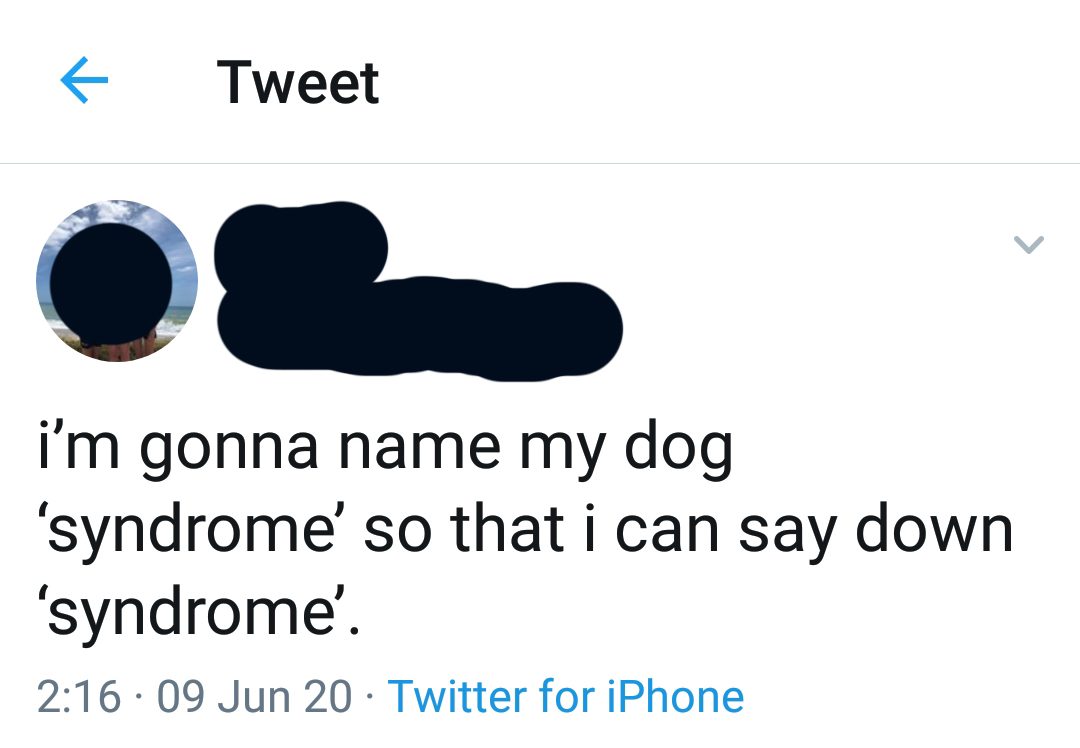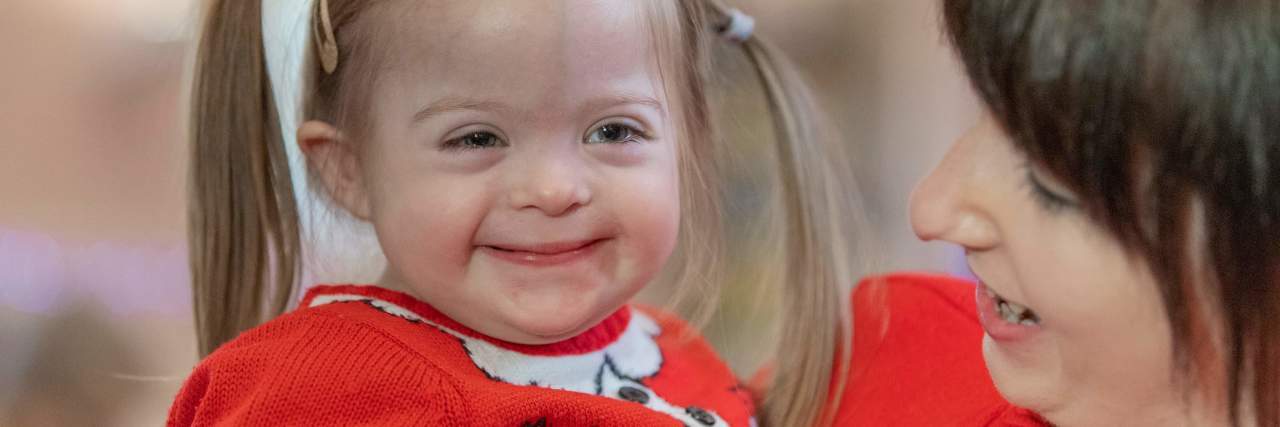How Twitter Is Enabling the Online Abuse of People With Down Syndrome
Editor's Note
This story contains screenshots of offensive messages about disability. If you have experienced emotional abuse, the following post could be potentially triggering. You can contact the Crisis Text Line by texting “START” to 741741.
Dear Twitter,
I write as the mother of a little girl with Down syndrome. My name is Rachel, my daughter is Betsy.
I am going to be blunt. Twitter is not doing enough to curtail the use of abusive language around Down syndrome on their platform. Condoning use of jokes about the condition, comments about the worthiness or right to life of people with the condition and even allowing accounts that mock the condition is unacceptable. It is discriminatory, prejudiced, irresponsible and dangerous. The onslaught of offensive material has become more prevalent during COVID-19 as people “joke” about having “Lock Down Syndrome” and are using it as an insult and a derogatory slur on people with Down syndrome.
The plethora of offensive material on the platform is truly astounding. Every day I search for “Down syndrome” on Twitter and I scroll through the previous 24-hour swamp of derogatory comments, discrimination and prejudice. I screenshot and save examples. I report every comment I see. And the next day, it is no better. Twitter, you need to make an attempt to curtail this vile spread of hostility towards people with Down syndrome, like my daughter.

Maybe you think it’s not important enough to do anything about? Maybe you think anyone taking offense is being over-sensitive? Maybe you have just used the word “snowflake?”
We all know what Down syndrome is, don’t we? Incorrect. What you think you know about Down syndrome comes from a world steeped in prejudice towards people with the condition. Historically, people with Down syndrome were treated as less than human. Placed in institutions. Ridiculed. Referred to as “Down syndrome people” or words that are so dehumanizing and offensive I refuse to repeat them. But things are different now, aren’t they?
To some extent they are. People with Down syndrome now have the same right to an education and healthcare, which, unsurprisingly, means people with the condition have a better quality of life now. This is a massive improvement, but in lots of ways, deep-seated prejudice is still evident in our communities. And Twitter gives them license to promote their prejudice.

By giving a platform to people who seek to dehumanize, ridicule and abuse people with Down syndrome, they are not only normalizing this derogatory treatment but encouraging and promoting it. Hate crimes against people with disabilities are on the rise in the U.K.
Something is a disability hate incident if the victim or anyone else thinks it was carried out because of hostility or prejudice against disabled people. As the mother of a child with Down syndrome, I can categorically state that the abuse towards people with my daughter’s condition Twitter allows to be promoted on their platform is motivated by prejudice.
Moreover, online abuse is categorized as a hate crime under U.K. law. Disability hate incidents can take many forms including verbal and physical abuse, teasing, bullying, threatening behavior, online abuse, threatening or insulting texts and damage to property. It can be a one-off incident or part of an ongoing campaign of harassment or intimidation. Twitter is giving an open arena for this.
Why is abusive language towards people with Down syndrome tolerated on Twitter?
What is being done to prevent the hate and hostility towards people with Down syndrome on Twitter?
Who monitors Twitter to ensure the law is being upheld on the platform?
Has any investment into strategies to safeguard people with learning disabilities been made?
When can people with Down syndrome and their loved ones be able to use Twitter without sustaining psychological damage from the hostility circulating?
When is Twitter going to take responsibility for the role it plays in giving a platform for hostility towards people with Down syndrome that leads to hate crime?
Social media should be a safe place for people with Down syndrome and their families to socialize. We should feel comfortable being who we are without being subjected to hostility. We should not have to spend hours reporting hate speech, only to see another barrage the next day.
Twitter, you are letting us down.
We look forward to your response.
Rachel & Betsy

